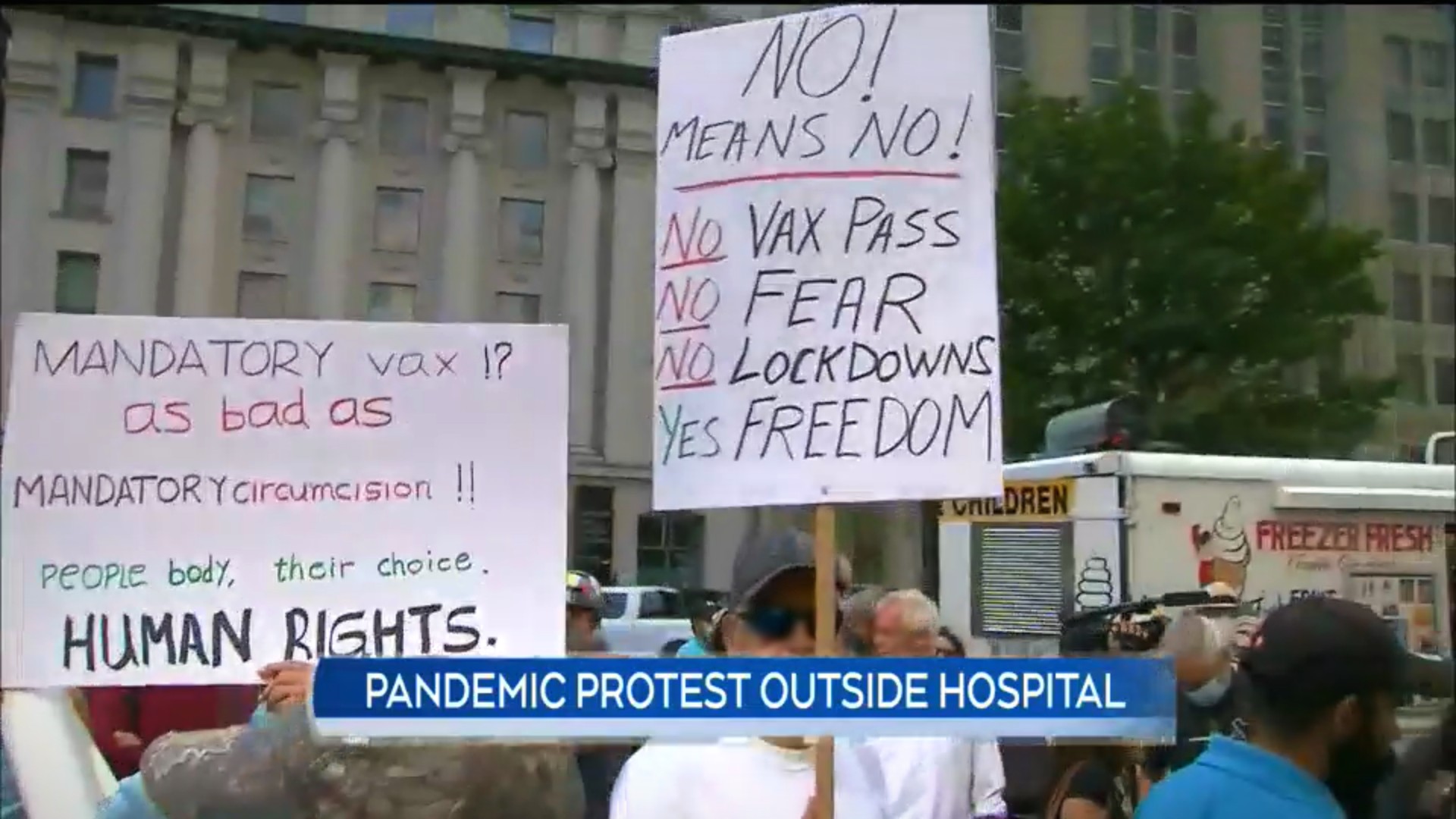On Monday, September 13, five hospitals around Ontario were home to anti-vaccine protests, including one in downtown Toronto.
Hospitals in Toronto, London, Barrie, Ottawa, and Sudbury had been preparing for the Monday protests that had been expected to impede access to hospital facilities. According to Connie Osborne, media relations manager for Toronto Police, officers were also on site to keep any blockage the protest would create to a minimum.
Osborne says, however, “there were no reports of people blocking access to ambulances, healthcare workers, and patients.”
A group called Canadian Frontline Nurses (CFN) was responsible for the organization of these protests. Their focus for the protest was on the vaccine passports, which has caused some of its members to lose their jobs for choosing to not get vaccinated.
“As individual hospitals were rolling out their policy, and threatening employment of their staff, hospitals were the place we knew our voices could not be ignored as they had been at city halls, and official Public Health office buildings,” says the organization when asked why they decided on hospitals as the setting for their protest.
CFN also goes on to state that the protests were not meant to be an attack on healthcare workers.
“By denying the effectiveness of COVID-19 vaccines, these protests are inflicting moral injury on health care workers who are working tirelessly on the frontlines caring for patients sick and dying from this dangerous virus,” says Anthony Dale, president and CEO of the Ontario Hospital Association (OHA).
Dale goes on to say that the skilled health care workers who are going “above and beyond the call of duty under these extraordinary circumstances,” despite the backlash and walkouts, are doing everything in their power to protect and care for their patients.
These protests have caused major moral injury to healthcare workers that are being targeted by individuals.
Jaime Gallaher, an emergency room nurse talked about her experiences working during the protests in a Global News article, saying they “we were making some life-and-death decisions around bed allocations,” going on to say that on the day of the protests the intensive care units (ICU) was full of unvaccinated COVID-19 patients.
Gallaher also said that the protest could be heard in the emergency room, adding that they could have picked a location better suited for a protest, like a park or another public space.
Other health care workers flocked to Twitter, echoing Gallaher’s thoughts. ICU nurse Birgit Umaigba eurged police to step in when many nurses reported that they wouldn’t be able to work on Monday because of the protests, as well as asking the protesters to take up their concerns with elected officials.
“The mandating of medical treatment is a direct violation of autonomy. Not only is it unprecedented, but it is unconstitutional, creating segregation and discrimination amongst Canadian citizens,” CFN says.
Allan Hutchinson, research professor at Osgoode Law School, however, provides an alternative view. “If the government introduces vaccine mandates or vaccine passports then a challenge could be made under the constitution, but those challenges are unlikely to succeed even though people’s rights may be infringed. Canada’s constitution says reasonable limits can be placed on any rights,” Hutchinson says.
Hutchinson also adds that, “there’s a strong tradition of Canada saying that public rights and health can demand certain restrictions on individual rights. It’s not as though the government has said that everyone should be vaccinated with no explanation.”


